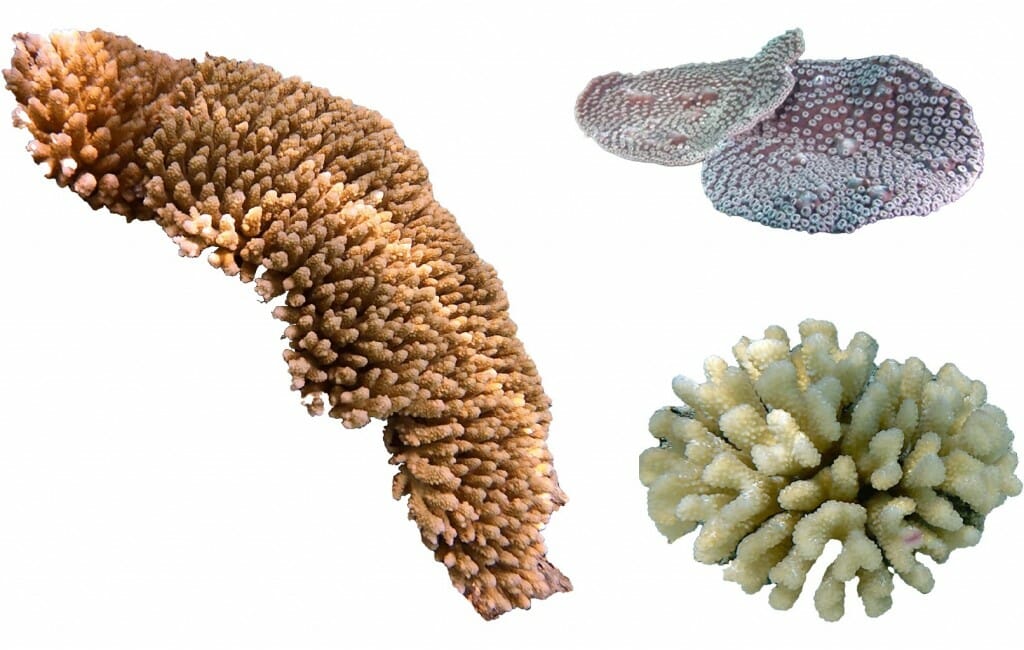A new University of Wisconsin-Madison study has implications for predicting coral reef survival and developing mitigation strategies against having their bony skeletons weakened by ocean acidification.
Though coral reefs make up less than one percent of the ocean floor, these ecosystems are among the most biodiverse on the planet - with over a million species estimated to be associated with reefs.
The coral species that make up these reefs are known to be differently sensitive or resilient to ocean acidification - the result of increasing atmospheric carbon dioxide levels. But scientists are not sure why.

The three corals used in the study: Acropora hyancinthus (left), Turbinaria peltata (top right), and Stylophora spp. (bottom right). Provided by Pupa Gilbert
In the study, researchers show that the crystallization rate of coral skeletons differs across species and is correlated with their resilience to acidification.
"Many agencies keep putting out reports in which they say, 'Yes, coral reefs are threatened,' with no idea what to do," says Pupa Gilbert, a physics professor at UW-Madison and senior author of the study that was published Jan. 17 in the Journal of the American Chemical Society. "Finding solutions that are science-based is a priority, and having a quantitative idea of exactly what's happening with climate change to coral reefs and skeletons is really important."
Reef-forming corals are marine animals that produce a hard skeleton made up of the mostly insoluble crystalline material aragonite. Aragonite forms when precursors made up of a more soluble form, amorphous calcium carbonate, are deposited onto the growing skeleton and then crystallize.
The team studied three genera of coral and took an in-depth look at the components of their growing skeletons. They used a technique that Gilbert pioneered called PEEM spectromicroscopy, which detects the different forms of calcium carbonate with the greatest sensitivity to date.







